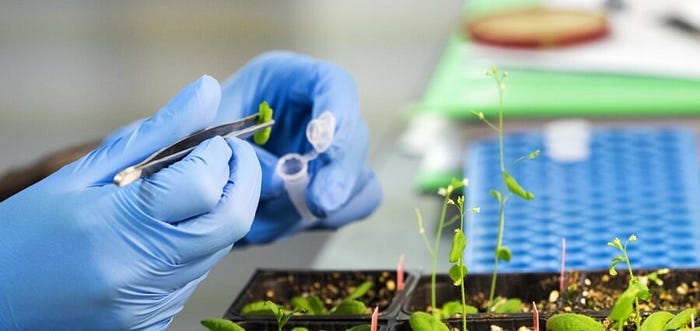
In a world that is facing the ever-growing challenge of feeding an expanding global population while also addressing environmental concerns, biotechnology has emerged as a powerful tool to enhance crop production and sustainability. Genetic engineering, a key component of biotechnology, has played a pivotal role in revolutionizing agriculture.
Enhancing Crop Resilience
One of the primary advantages of genetic engineering in agriculture is the ability to develop crops that are more resilient in the face of various environmental stressors. Through the introduction of specific genes, scientists have created plants that can withstand harsh conditions such as drought, extreme temperatures, and saline soil. These genetically modified crops have the potential to thrive in regions with unfavorable growing conditions, helping to increase food production in areas where traditional crops would struggle to survive.
Improved Nutritional Content
Genetic engineering has enabled the development of crops with enhanced nutritional profiles. For instance, biofortified crops have been engineered to contain higher levels of essential nutrients, such as vitamin A, iron, and zinc. These nutrient-rich crops can address widespread malnutrition issues in many parts of the world. By improving the nutritional content of staple crops, genetic engineering plays a critical role in promoting global food security and public health.
Extended Shelf Life
Genetic engineering has also contributed to crops with extended shelf life. For example, genetically modified tomatoes can stay fresh for longer periods, reducing food waste and enabling the transportation of produce to distant markets without spoilage. This not only benefits consumers by ensuring the availability of fresh produce but also reduces the environmental impact associated with food wastage.
Preserving Biodiversity
Genetic engineering can also be a powerful tool for preserving biodiversity. By developing crops that are resistant to diseases, scientists can reduce the likelihood of disease outbreaks that might harm both the cultivated crops and their wild relatives. Additionally, genetically modified crops that require fewer chemical inputs can help prevent the pollution of ecosystems and the harm to non-target organisms. This ensures the well-being of not only the crops themselves but also the broader ecological landscape.
Consumer Benefits
Genetically modified crops have undergone rigorous testing to ensure their safety for human consumption. These crops are no less safe than conventionally bred ones and, in some cases, offer direct benefits to consumers. For example, genetically engineered potatoes produce lower levels of acrylamide, a potential carcinogen formed during cooking, making them safer to eat. Genetically modified foods can also provide cost-effective options for consumers, as they often require fewer resources and less pesticide application, resulting in lower prices at the grocery store.
READ MORE:https://theknowledgereview.com/genetic-engineering-applications-in-agriculture/
SOURCE:https://theknowledgereview.com
Top Education Magazine
Educational Magazine in world
Best Educational Magazine in world
Blogs on Education
Online education magazine
Best Education Magazine
Education Magazine



























